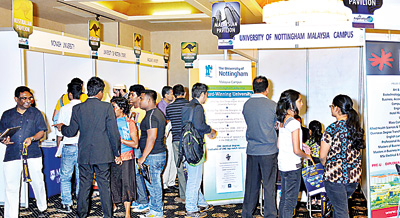3D technologies may help SL leapfrog: Top Australian academic
By Jagdish HathiramaniView(s):
Dr. Nick Tate
The next big digital disruption worldwide, which could also specifically benefit smaller countries such as Sri Lanka, is three dimensional (3D) scanning and printing technologies, according to Australian Computer Society President Dr. Nick Tate.
Apart from near miraculous medical applications, from reproducing prosthetic limbs to even creating replacement human bones used in operations, Dr. Tate suggested that 3D scanning and printing would significantly impact the supply chain industry. This would happen as a result of 3D technologies freeing up countries like Sri Lanka, which have been heavily dependent on the wholesale industry for parts distribution, to leapfrog non-favourable practices and, itself, acquire needed parts.
Visiting Sri Lanka to address the recently concluded National IT Conference 2012, held on July 10 and July 11 and organised by the Computer Society of Sri Lanka, Dr. Tate in an interview with the Business Times spoke on the shift pertaining to IT departments in organisations, from their roots offering only hardware- and software-only functions to their present emphasis on analysis and planning. And their previous, simplistic operations having been farmed out to cloud-based applications.
He also noted that countries such as Australia, and even Sri Lanka, could learn a lot from the UK ICT education system overhaul occurring over the last few years. Elaborating, he indicated that it would be better to follow the UK’s example; re-align education offerings to offer something to both those interested in pursuing IT as degree as well as also using ICT as an enabler for other subject matter.
The latter would be done by improving physical ICT infrastructure as well as wider integration of ICT within other educational pathways. For example, offering e-poetry as a course.In addition, he also revealed that Sri Lankan academics, as well as their colleagues from a number of other countries, will soon have access to a 100-petabyte (equivalent to a few billion filing cabinets worth of data) cloud-based database project, currently being developed to link all of Australia’s universities.
As the leader of this project, the Australian government-led Research Data Storage Infrastructure (RDSI), Dr. Tate also signalled that it would go live in 2014, with much of the research collected by Australian universities being available online from that point on.
Watch the video at www.sundaytimes.lk/videos

















